Best AI tools for< Webxr Developer >
Infographic
5 - AI tool Sites
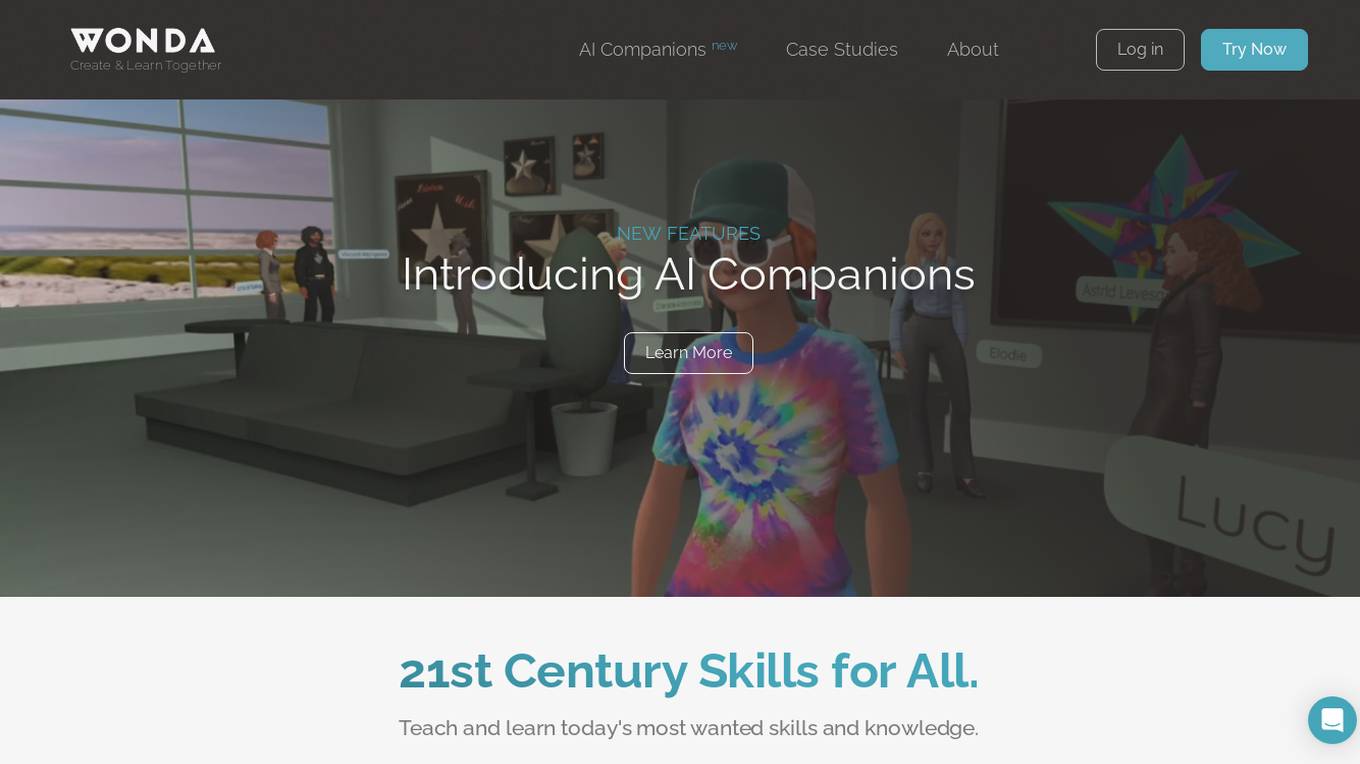
Wonda
Wonda is an AI-powered platform that enables users to create immersive learning experiences and simulations. It offers a range of features such as AI companions, quiz and assessments, virtual tours, role-playing games, and virtual workshops. Users can easily build interactive learning journeys without the need for coding. Wonda aims to enhance engagement and collaboration in training and onboarding processes, making learning experiences unforgettable and impactful. The platform supports integration with various learning management systems and provides advanced role management options for secure sharing. With Wonda, users can unleash their creativity and build virtual exhibits to showcase their ideas and projects in a fun and engaging way.
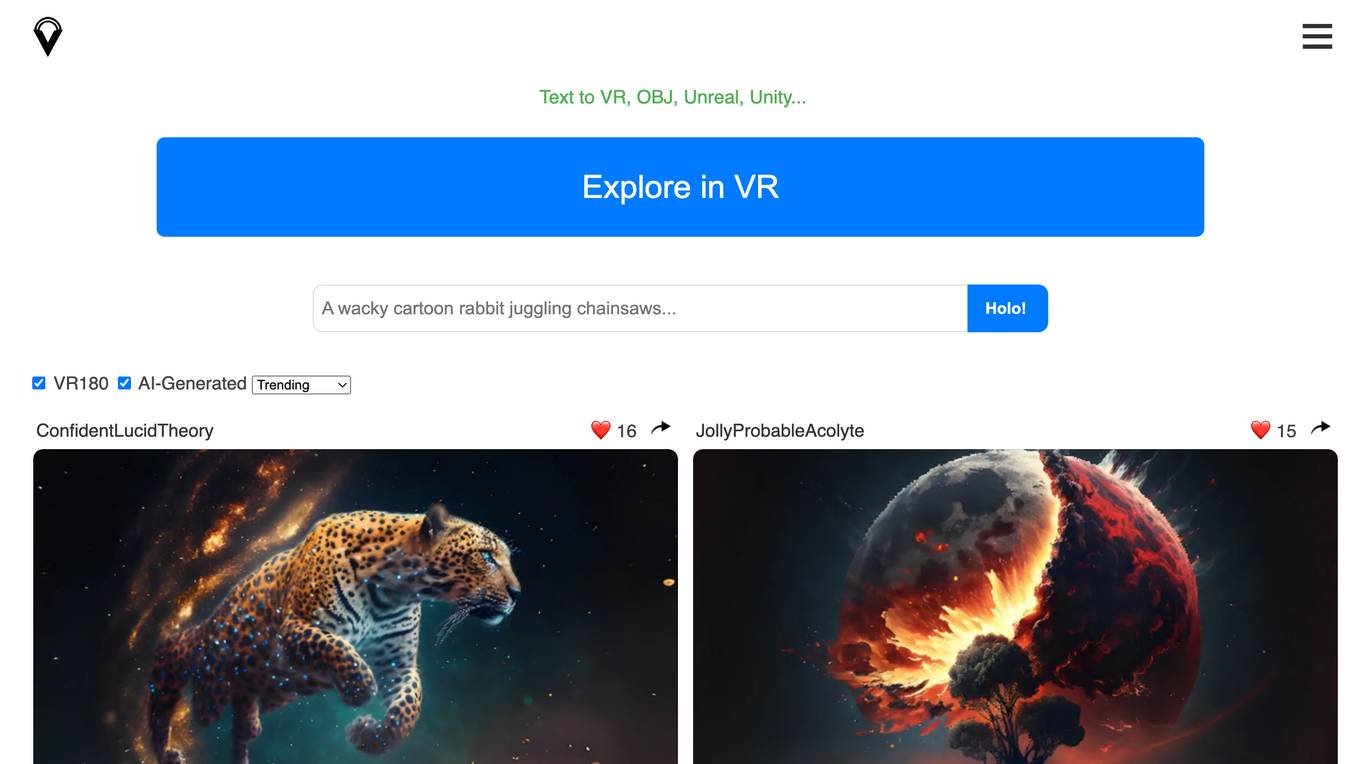
Holovolo
Holovolo is a platform that allows users to create and share immersive volumetric VR180 videos and photos, as well as 3D stable diffusion models. The platform is designed to be easy to use, even for beginners, and it offers a variety of features that make it a powerful tool for creating and sharing immersive content.

Vossle
Vossle is an AI-powered cloud-based SaaS platform for businesses and agencies to create web-based augmented reality experiences. Reach millions of users instantly with App-less Augmented Reality (WebAR) Experience that works on every modern smartphone browser the moment you publish! No app installs are required! No need to write a line of code or to develop costly apps. Build immersive AR experiences without installing any apps.
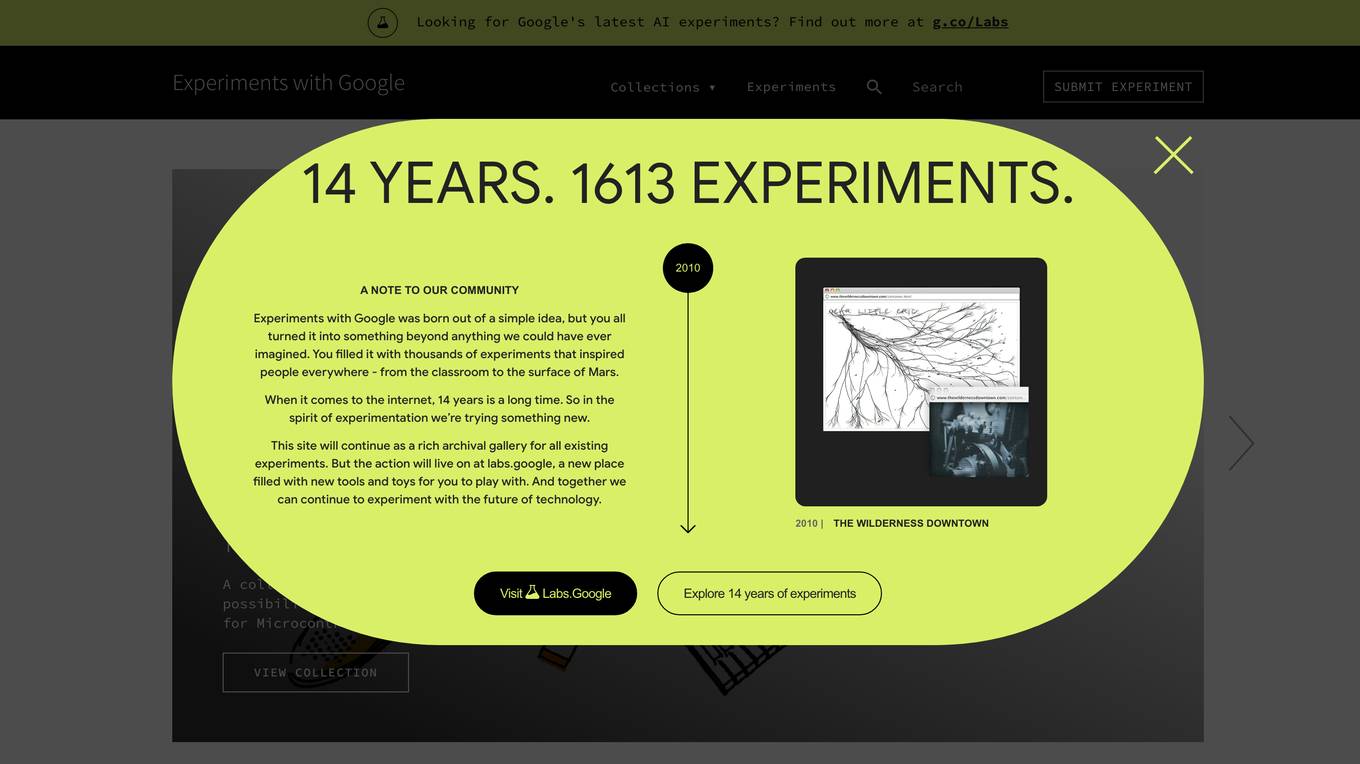
Experiments with Google
Experiments with Google is a website that showcases a collection of experiments created by coders using Chrome, Android, AI, AR, and more. The experiments are designed to inspire others to create new experiments and explore the possibilities of these technologies. The website also provides helpful tools and resources for creating experiments.
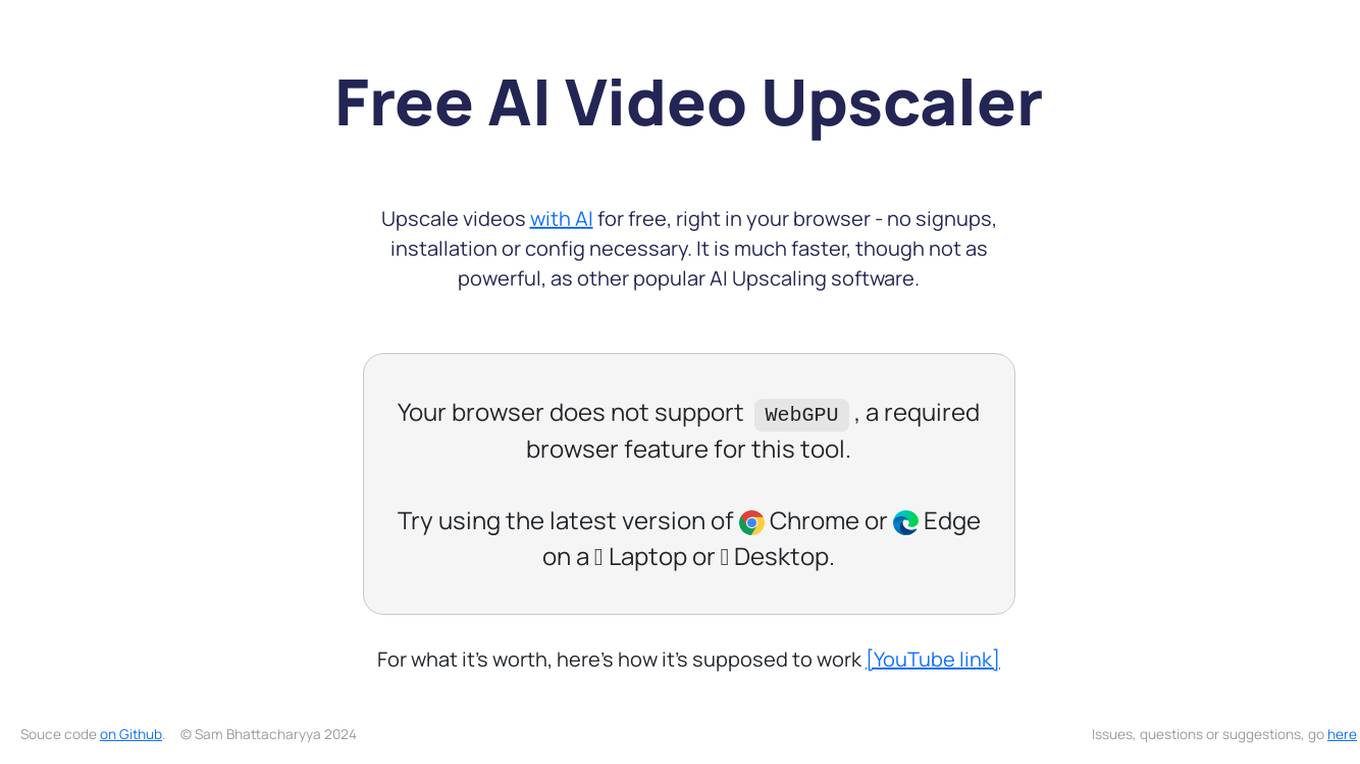
Free AI Video Upscaler
Free AI Video Upscaler is a free, open-source tool that allows users to upscale videos with AI right in their browser. It is quick, easy to use, and does not require any signups or installation. The tool is particularly well-suited for upscaling animated content.
0 - Open Source Tools
1 - OpenAI Gpts
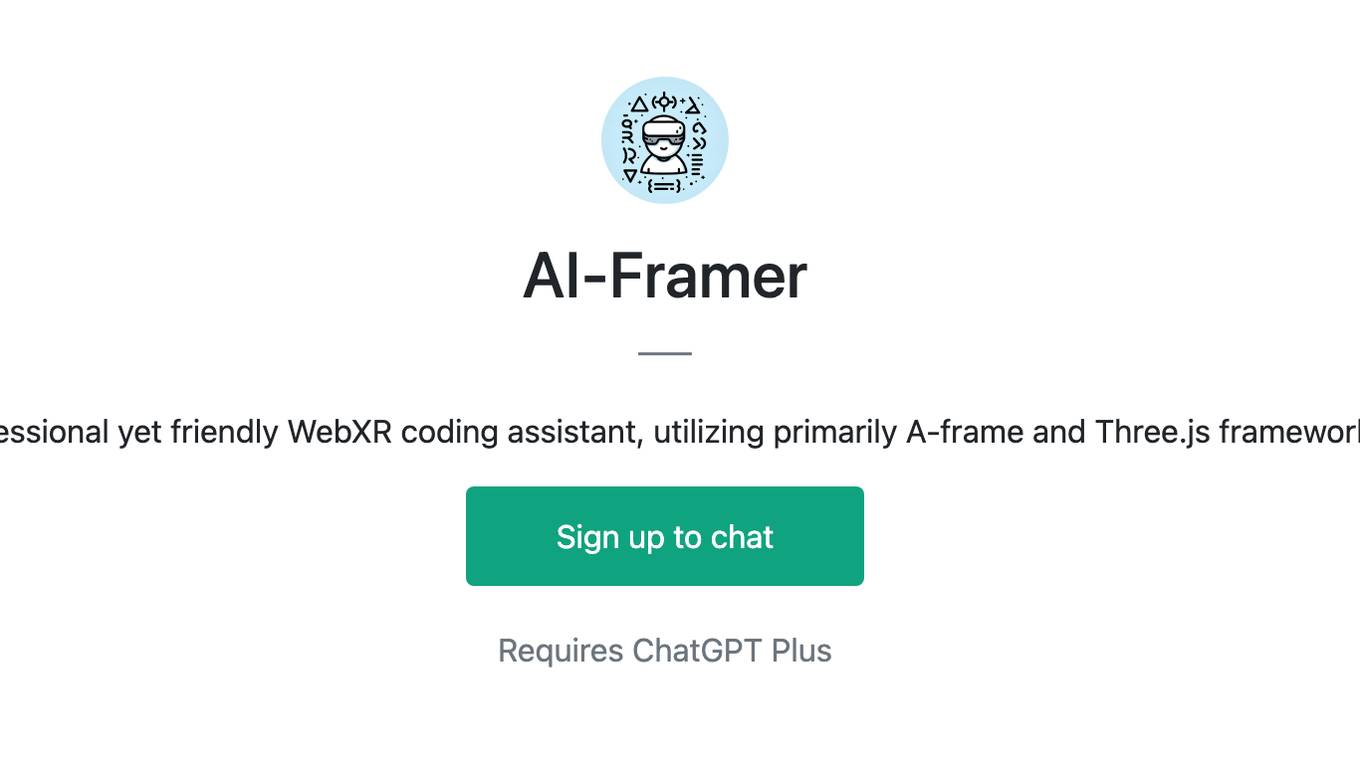
AI-Framer
Professional yet friendly WebXR coding assistant, utilizing primarily A-frame and Three.js frameworks.